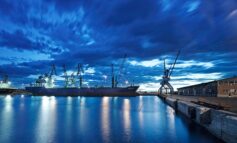The port industry as an energy-intensive sector, generating negative externalities and environmental impacts in several areas, e.g., air emissions, water emissions, etc. (Bailey and Solomon, 2004; Dinwoodie el at., 2012). magnitude of highly impacting business processes/activities embedded in port spaces variety of economic actors located within/around port boundaries. These arguments are urging for the adoption of innovative green strategies for the reduction of energy consumptions, making energy management more efficient (Acciaro, 2015). The increasing number of academic contributions on this issue and the implementation of energy policies and funding programmes for pursuing energy efficiency targets, demonstrate the attention to the mitigation of the environmental impact at EU level.
PortEconomics members Giovanni Satta, Francesco Parola, along with Ramon Francesconi, Marta Giannoni and Dario Barsi (University of Genoa), identified that theoretical models and quantitative methods for investigating energy consumptions in ports are still underdeveloped, empirical dataset regarding port energy consumption are still lacking because of the scarce diffusion of culture in energy management in Port Authorities and private terminal operators and that energy efficiency KPIs need an interdisciplinary approach (economic and engineering perspectives).
The authors- in their latest port study, presented during International Association of Maritime Economists Annual e-Conference 2020, organised by Hong-Kong Polytechnic University- developed an “ad-hoc” conceptual framework for estimating energy consumption which originates in different typologies of port facilities.
The presentation of the port study can be downloaded here.












